On the evening of June 1st Palestinian terrorists opened fire on the civilian community of Halamish.
“The Israel Defense Forces said that following an initial investigation, it appeared two Palestinian gunmen opened fire on the West Bank settlement of Neve Tzuf (also known as Halamish), near the Palestinian town of Nabi Saleh on Thursday night and that troops stationed at the adjacent army post on Route 465 returned fire.”
Tragically, two Palestinian civilians were caught in the crossfire:
“Moments after the exchange, a Palestinian man and his child appeared at the entrance to Neve Tzuf with serious injuries to seek medical help.
It appeared that “as a result of the gunfire by the [Israeli] forces, two Palestinians were hurt,” the military said in a statement, adding that it “regrets the harm” to noncombatants. A probe into the incident was underway, it said. […]
The Magen David Adom ambulance service said its medics treated the three-year-old boy in critical condition and the man in his forties in serious condition. The toddler was rushed to the Sheba Medical Center in Ramat Gan by military helicopter, while the man was taken by the Palestinian Red Crescent to a hospital in the West Bank. The Israeli hospital said the young boy remained in critical condition.”
The BBC News website did not report that incident at the time.
On June 5th the child died of his injuries and later in the day the BBC News website published a report by Yolande Knell titled “Palestinian toddler shot by Israeli soldiers dies”.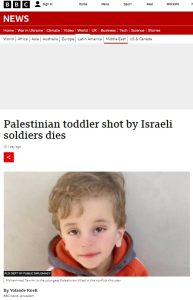
As with that headline, the report’s first two paragraphs fail to explain that the shooting was accidental:
“A three-year-old Palestinian boy has died four days after being shot in the head by Israeli forces.
Mohammed Tamimi and his father were shot while leaving their home in Nabi Saleh, in the occupied West Bank.”
Clearly it would not have been difficult to insert the word accidentally before the word shot in either of those two sentences.
The report then continues:
“The Israel military said its soldiers opened fire while in pursuit of two gunmen who had earlier shot at a nearby Jewish settlement.
In a statement after the incident, the military added that it regretted harm to “non-combatants”.”
Four paragraphs later, readers find a qualified account of the attack which prompted the soldiers to return fire: [emphasis added]
“The Israeli military, which has a post just outside Nabi Saleh, previously released grainy video which apparently shows two figures shooting guns. It said the shooting towards the settlement of Halamish – also known as Neveh Tzuf – lasted “several minutes”.
It said that its soldiers responded with live fire, causing two Palestinians to be injured.
“The [Israeli military] regrets harm to non-combatants and is committed to doing everything in its power to prevent such incidents. The incident is under review,” it stated.”
Readers can find that “grainy video” here.
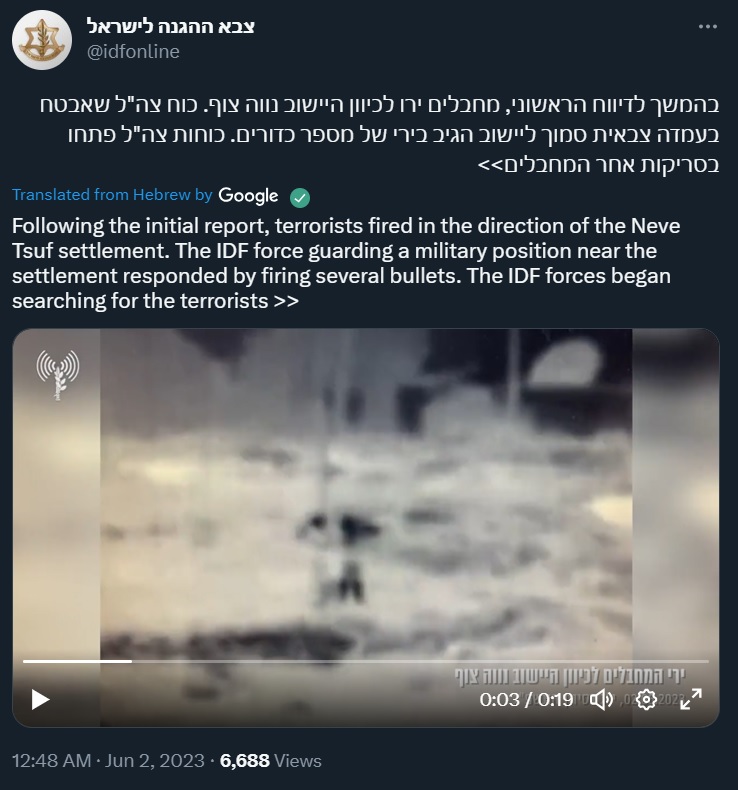
While reports at the time of the incident noted two people injured, Knell claims to have found a third and amplifies his version of the events:
“Palestinian activist and journalist Bilal Tamimi – who was also injured – said that the Israeli army was waiting to ambush a car at the entrance to Nabi Saleh and opened fire as it approached.”
According to reports at Ha’aretz (Hebrew) and other outlets Bilal Tamimi’s injury was not sustained in the same incident in which the father and son were shot.
Readers are not informed whether the “activist and journalist” Bilal Tamimi quoted by Knell is the person of the same name who, together with his brother Bassem, ran a ‘news agency’ called Tamimi Press. That organisation produced and distributed footage and images from the weekly violent riots in Nabi Saleh (with Bassem Tamimi being one of their main organisers), often featuring children from their clan such as Bassem’s daughter Ahed Tamimi.
Obviously it would have been helpful for readers to be made aware of such background before Knell went on to describe those weekly riots as “demonstrations”:
“The settlement of Halamish was set up in the 1970s and has long been a source of friction with Palestinian villagers living close by.
For several years, Friday demonstrations took place in Nabi Saleh, with local activists protesting against the confiscation of the village’s lands and the takeover of its spring.
These would often lead to violent confrontations with Israeli soldiers using tear gas and rubber bullets to block their path.”
Interestingly, Knell’s background on the history of the area does not include any mention of previous terror attacks in or near Halamish.
Knell uses the BBC’s now standard unhelpful presentation of Palestinian fatalities which fails to adequately clarify that the overwhelming majority of those killed were members of terrorist organisations or males engaged in acts of terror or violence at the time.
“Since the start of the year, some 150 Palestinians have been killed by Israeli forces or settlers in the occupied West Bank, East Jerusalem and the Gaza Strip. The figures include militants as well as civilians.”
She goes on to promote redundant linkage between Palestinians killed during counter-terrorism operations and Israelis murdered in terror attacks:
“In addition, 23 people on the Israeli side have been killed – including two foreigners and a Palestinian worker – in violence related to the Israel-Palestinian conflict. One of those killed was a member of the Israeli security forces.
On both sides, there are children among the dead. Mohammed Tamimi was the youngest Palestinian to have been killed in the West Bank.”
Notably, the youngest Israeli children murdered in Palestinian terror attacks this year were not even named in BBC coverage, let alone pictured.
Knell ends her report with another well-worn BBC mantra:
“Some 700,000 settlers currently live in the West Bank and East Jerusalem. Settlements are considered illegal under international law although Israel disputes that.”
The politicised background promoted in Knell’s report distracts readers from the actual topic of a tragic incident in which a child and his father were caught up in crossfire following a Palestinian shooting attack.
Related Articles:
BBC REFRAINS FROM USING THE WORD TERROR IN REPORT ON MURDERED FAMILY

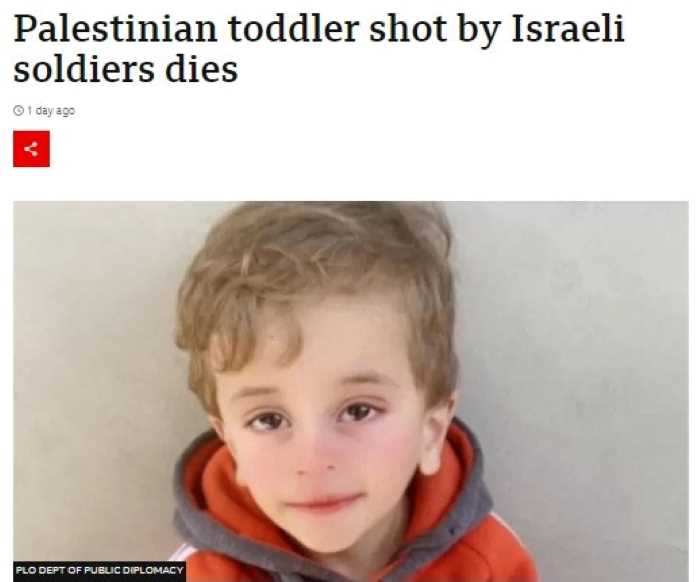
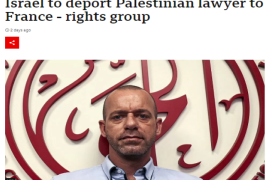
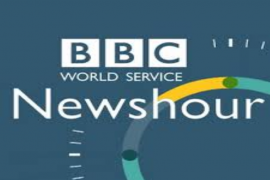
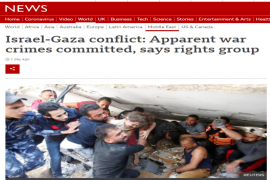
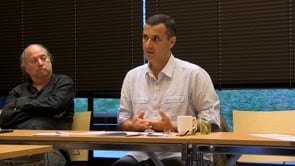
Did anyone expect any other kind of report from Knell who has paid to have her background removed from off-line information. Only someone with something to hide would do that. Impartial reporting? pull the other one it has bells on it. #defundthebbc